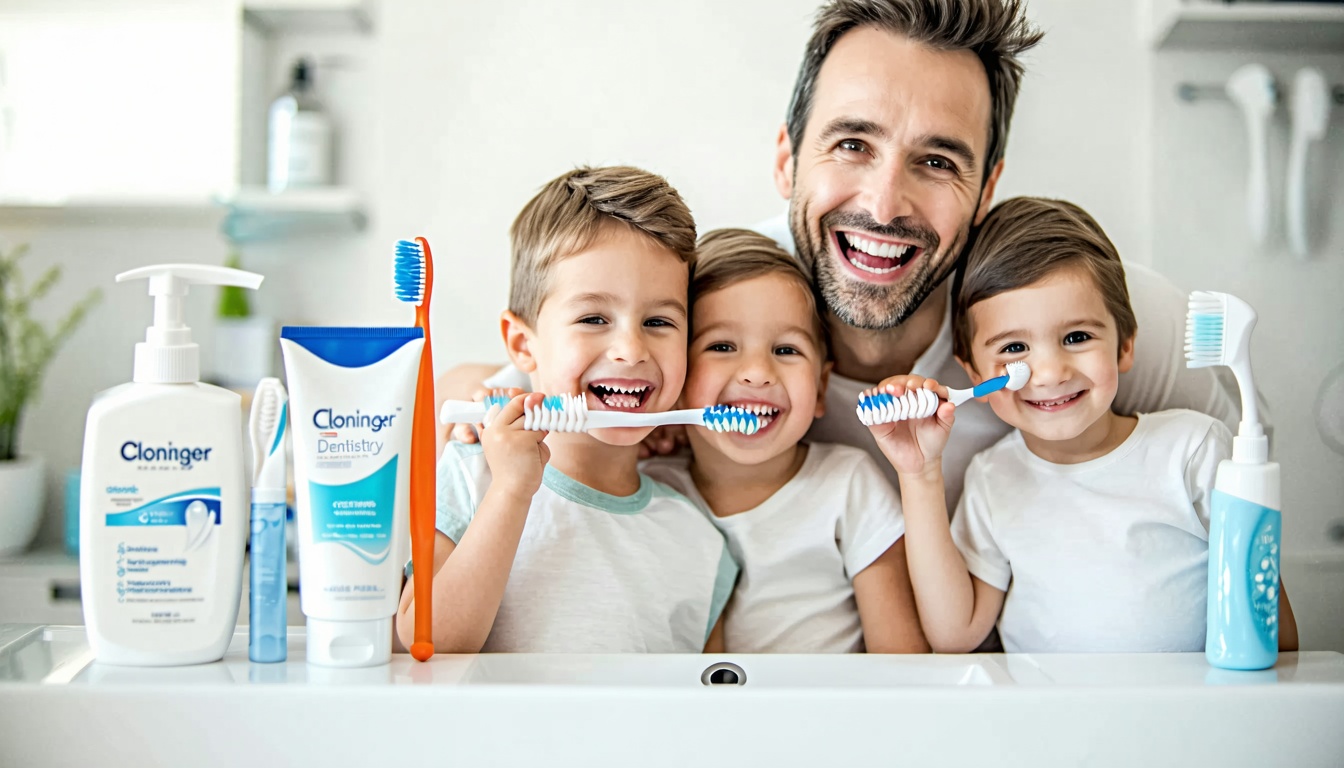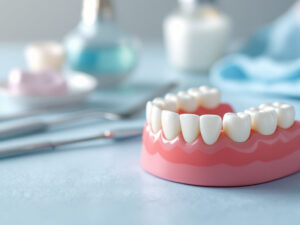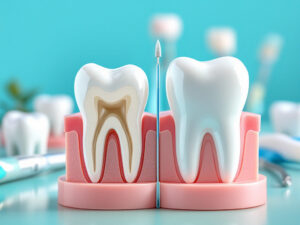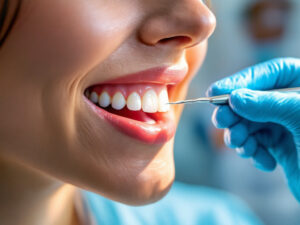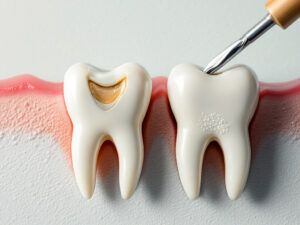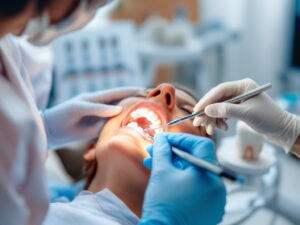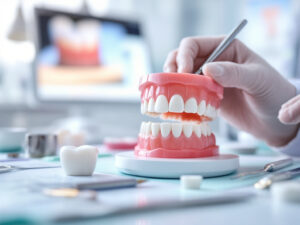Importance of Good Oral Hygiene
Maintaining optimal oral hygiene is crucial not just for our dental health but also for our overall well-being. Neglecting our oral health can lead to a range of health issues that extend beyond the mouth.
Link Between Oral and Overall Health
Oral health is closely linked to our overall health. Research indicates that infections in the mouth can result in the spread of bacteria through the bloodstream, leading to severe health concerns such as heart disease and stroke Cleveland Clinic. This connection emphasizes why we must prioritize our dental care. Ensuring good oral hygiene can help prevent infections that could affect other systems in our bodies.
Signs of Poor Oral Hygiene
Recognizing the signs of inadequate oral hygiene can help us address issues before they escalate. These signs include:
| Sign | Description |
|---|---|
| Bleeding Gums | This can indicate gum disease or gingivitis. |
| Tooth Pain | Persistent pain may signal cavities or infections. |
| Loose Teeth | Loose teeth can be a sign of advanced gum disease. |
| Chronic Bad Breath | Known as halitosis, it can result from poor oral care or underlying health issues. |
Addressing these symptoms is essential to maintaining good oral health. If we notice any of these signs, we should seek professional dental care. Regular visits to the dentist can help us stay informed about our oral health and are part of the importance of routine dental check-ups and cleanings. By taking proactive measures, we can significantly enhance our dental hygiene and overall health.
Maintaining Optimal Oral Hygiene
Oral hygiene is a crucial aspect of our overall health. Implementing effective practices, including daily brushing and flossing, along with regular dental exams, helps prevent common oral health issues.
Daily Brushing and Flossing
We understand the importance of maintaining optimal oral hygiene through daily brushing and flossing. Brushing should be done at least twice a day for two minutes each time, using fluoride toothpaste to strengthen teeth and prevent decay.
Here’s a simple table outlining the key brushing tips:
| Brushing Tip | Details |
|---|---|
| Frequency | Twice a day |
| Duration | 2 minutes per session |
| Technique | Gently brush all sides of each tooth |
| Toothpaste | Use fluoride toothpaste |
| Brush Replacement Frequency | Every 3-4 months or when bristles are worn |
Flossing is equally important, as it effectively removes food particles and plaque from between teeth that a toothbrush cannot reach. We should floss at least once a day, typically before bedtime, to ensure that our gums remain healthy and free from inflammation.
Regular Dental Exams
In addition to daily maintenance, we emphasize the need for regular dental exams. The American Dental Association recommends that most individuals schedule a dental checkup and cleaning every six months. This practice helps us detect and address any potential issues, such as cavities or gum disease, before they become severe.
The benefits of regular dental exams include:
- Identification of oral health problems early on
- Professional cleaning to remove tartar and plaque buildup
- Guidance on proper oral care techniques and products
For families, we advocate for establishing a routine that includes regular dental visits for children as well, which can foster lifelong oral health habits.
By adhering to these tips for maintaining optimal oral hygiene at home, we can safeguard our health and avoid the challenges that come with poor oral care. For more information on the importance of routine check-ups, see our detailed article on the importance of routine dental check-ups and cleanings.
Choosing the Right Oral Care Products
Selecting the appropriate oral care products is a fundamental step in maintaining optimal oral hygiene at home. We can ensure that our families are taking the best possible care of their teeth by choosing effective products and understanding their benefits.
Mouthwash Benefits and Types
Mouthwash can play a significant role in our daily oral hygiene routine. There are two main types of mouthwash:
- Cosmetic Mouthwash:
- Primarily used for freshening breath temporarily.
- Provides a clean feeling but does not address underlying oral health issues.
- Therapeutic Mouthwash:
- Contains active ingredients that help reduce bacteria, address gingivitis, and prevent cavities.
- Can be available over-the-counter or by prescription.
Different mouthwashes offer various benefits, such as teeth whitening, gum health, cavity prevention, and breath freshening. For general use, it’s sensible to opt for mouthwash with the American Dental Association’s Seal of Acceptance, which indicates that it meets specific safety and efficacy standards based on scientific evidence (Healthline).
When considering personal oral health goals, we should choose mouthwash formulated with specific ingredients for desired results. For example, a mouthwash containing fluoride is essential for cavity prevention and plaque reduction.
| Mouthwash Type | Key Benefit | Example Product |
|---|---|---|
| Cosmetic | Breath freshening | Generic Breath Freshening Rinse |
| Therapeutic | Reduces bacteria & gingivitis | LISTERINE® Antiseptic COOL MINT® (21.6% alcohol) |
| Sensitive Teeth | Eliminates bad breath | CloSYS Ultra Sensitive Mouthwash |
ADA-Approved Oral Health Products
Using ADA-approved products is vital in supporting our oral health goals. The American Dental Association recognizes products that have undergone rigorous evaluation for safety and efficacy. When we choose ADA-approved oral health products, such as toothpaste, mouthwash, and floss, we can trust their effectiveness in maintaining our family’s dental hygiene.
Selecting ADA-approved products can benefit us by providing assurance that these products:
- Have been tested for effectiveness against dental issues such as plaque and gingivitis.
- Contain ingredients that are safe for use.
- Meet the medical and scientific standards set forth by oral health authorities.
By integrating these products into our daily oral hygiene routine, we can encourage optimal dental health for ourselves and our loved ones. To learn more about the importance of routine check-ups and cleanings, visit our article on the importance of routine dental check-ups and cleanings.
Specific Oral Care Tips
Practicing optimal oral hygiene is essential for maintaining healthy teeth and gums. In this section, we will discuss the importance of fluoride and effective flossing techniques to support our oral health objectives.
Importance of Fluoride
Fluoride plays a vital role in preventing dental cavities. Studies have shown that fluoride-containing toothpaste can be effective in caries control, providing preventive effects ranging from 16% to 31% per tooth or surface when compared to placebos or non-fluoride options (ADA). This mineral works by enhancing the remineralization of enamel, which is crucial for protecting teeth from decay.
Research indicates that individuals who do not receive adequate fluoride may experience a higher risk of tooth decay, even if they maintain good oral hygiene practices (Medical News Today). For optimal protection, we recommend using fluoride toothpaste and considering professional fluoride treatments to further safeguard against cavities. For more information, visit our article on the role of fluoride treatments in preventing tooth decay.
| Fluoride Benefits | Impact |
|---|---|
| Strengthens enamel | Reduces risk of cavities |
| Enhances remineralization | Helps repair early signs of decay |
| Provides antibacterial effects | Diminishes plaque formation |
Flossing Techniques
Flossing is an essential component of our oral hygiene routine that helps remove food particles and plaque from between teeth where toothbrushes often miss. Effective flossing techniques can significantly reduce the risk of gum disease and cavities.
To maximize the benefits of flossing, consider the following tips:
- Choose the Right Floss: We can select waxed or unwaxed dental floss, depending on personal preference and space between teeth. Waxed floss may slide more easily between tight contacts.
- Use Proper Technique: Gently insert the floss between the teeth and curve it around each tooth in a C-shape. Slide it up and down the side of the tooth and beneath the gumline to effectively remove debris.
- Be Consistent: Flossing at least once a day is vital for maintaining optimal oral hygiene. We can add this step to our evening routine for a cleaner finish before bedtime.
- Consider Flossing Alternatives: For those who find traditional floss challenging, options like floss picks or water flossers can be effective alternatives.
By implementing fluoride treatments and mastering effective flossing techniques, we can significantly enhance our oral health and enjoy maintaining our smiles. For more tips, refer to our article on tips for maintaining optimal oral hygiene at home.
Factors Affecting Oral Health
Understanding the factors that affect our oral health is essential for effective dental hygiene. Two significant elements include the impact of sugary foods on dental caries and the differences between alcohol and alcohol-free mouthwash.
Sugary Foods and Dental Caries
We know that sugary foods play a vital role in the development of dental caries. Specifically, free sugars—such as sucrose, glucose, and fructose—are considered primary contributors to this issue. When these sugars are consumed, they interact with the biofilm of bacteria in the mouth, leading to the production of acid that demineralizes tooth enamel (ADA).
A systematic review from 2014 highlighted a clear link between free sugar intake and caries development. This review found that populations consuming more than 10% of their total energy intake from free sugars had a higher incidence of caries compared to those whose intake was less than 10% (ADA). Therefore, the World Health Organization recommends that free sugar intake should be limited to less than 10% of total energy intake, with further reduction to less than 5% for overall health benefits.
| Sugar Intake Level | Risk of Dental Caries |
|---|---|
| Below 10% of Total Energy | Lower Risk |
| Above 10% of Total Energy | Higher Risk |
In addition to overall sugar intake, the frequency of sugar consumption can also heighten caries risk. Increased snacking between meals can lead to more acid exposure in the mouth. It takes approximately 30 minutes for the mouth’s pH to return to a neutral state after consuming sugar; thus, consuming sugary snacks within this window can be especially harmful (ADA).
Alcohol vs. Alcohol-Free Mouthwash
When it comes to mouthwash options, the choice between alcohol-based and alcohol-free versions can significantly influence oral health. We understand that alcohol-free mouthwashes are often recommended for their gentler formulation; they do not dry out the mouth and are less likely to irritate sensitivity-prone tissues. This is particularly beneficial for those with conditions such as dry mouth or sensitive teeth.
Conversely, alcohol-containing mouthwashes can effectively kill bacteria but may also lead to dryness and discomfort for some users. It is important to consider our individual needs when selecting a mouthwash. If we notice dry mouth issues or experience sensitivity, it may be worth switching to an alcohol-free option to maintain comfort while still ensuring effective oral hygiene.
For more tips on maintaining our oral health, we can consult additional resources such as the importance of routine dental check-ups and cleanings or the role of fluoride treatments in preventing tooth decay. Implementing dietary guidelines and choosing the right oral care products will further help us maintain optimal oral hygiene at home.
Keeping Your Tools Clean
Maintaining proper oral hygiene starts with the tools we use daily. Here, we will discuss key guidelines for replacing toothbrushes and effective brushing techniques to ensure our oral health remains optimal.
Toothbrush Replacement Guidelines
To keep our toothbrush effective and our mouths healthy, it is crucial to regularly replace our toothbrushes. The American Dental Association (ADA) recommends that we change our toothbrush every three to four months. Additionally, we should consider replacing our toothbrush sooner if the bristles are frayed or if we have specific dental concerns such as periodontal disease or tooth decay, which may require more frequent replacements (Colgate).
| Replacement Criteria | Recommendation |
|---|---|
| General Use | Every 3-4 months |
| Aggressive Brushing | Sooner if frayed |
| Specific Dental Concerns | More frequent replacements |
For more tips on toothbrush management, please visit our article on how often should you replace your toothbrush?.
Proper Toothbrushing Techniques
Using the right techniques while brushing is essential for effective cleaning and to avoid potential damage to our teeth and gums. Here are some recommended techniques to follow:
- Brush Duration: Spend 2 to 3 minutes brushing your teeth.
- Motion: Use small, circular motions to clean the surfaces of your teeth. This minimizes harm to tooth enamel and sensitive gums.
- Tooth Areas: Ensure you brush the front, back, and top surfaces of every tooth for thorough cleaning.
- Toothbrush Type: Use a soft-bristled toothbrush to reduce the risk of enamel erosion and gum irritation.
Avoid using sawing back-and-forth motions, as this can lead to unnecessary wear on your teeth. By adhering to these guidelines, we can maintain effective oral hygiene and support our overall health.
By focusing on our tools and methods, we can enhance our oral care routine and help prevent costly restorative dental procedures in the long run (Cleveland Clinic).

